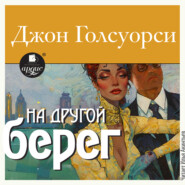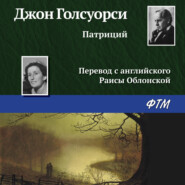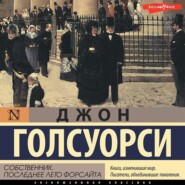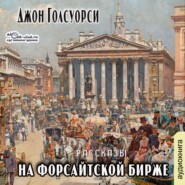По всем вопросам обращайтесь на: info@litportal.ru
(©) 2003-2024.
✖
Beyond
Настройки чтения
Размер шрифта
Высота строк
Поля
Little Gyp, aged nearly four and a half that first of May, stood at the edge of the tulip border, bowing to two hen turkeys who were poking their heads elegantly here and there among the flowers. She was absurdly like her mother, the same oval-shaped face, dark arched brows, large and clear brown eyes; but she had the modern child’s open-air look; her hair, that curled over at the ends, was not allowed to be long, and her polished brown legs were bare to the knees.
“Turkeys! You aren’t good, are you? Come ON!” And, stretching out her hands with the palms held up, she backed away from the tulip-bed. The turkeys, trailing delicately their long-toed feet and uttering soft, liquid interrogations, moved after her in hopes of what she was not holding in her little brown hands. The sun, down in the west, for it was past tea-time, slanted from over the roof of the red house, and painted up that small procession – the deep blue frock of little Gyp, the glint of gold in the chestnut of her hair; the daisy-starred grass; the dark birds with translucent red dewlaps, and checkered tails and the tulip background, puce and red and yellow. When she had lured them to the open gate, little Gyp raised herself, and said:
“Aren’t you duffies, dears? Shoo!” And on the tails of the turkeys she shut the gate. Then she went to where, under the walnut-tree – the one large tree of that walled garden – a very old Scotch terrier was lying, and sitting down beside him, began stroking his white muzzle, saying:
“Ossy, Ossy, do you love me?”
Presently, seeing her mother in the porch, she jumped up, and crying out: “Ossy – Ossy! Walk!” rushed to Gyp and embraced her legs, while the old Scotch terrier slowly followed.
Thus held prisoner, Gyp watched the dog’s approach. Nearly three years had changed her a little. Her face was softer, and rather more grave, her form a little fuller, her hair, if anything, darker, and done differently – instead of waving in wings and being coiled up behind, it was smoothly gathered round in a soft and lustrous helmet, by which fashion the shape of her head was better revealed.
“Darling, go and ask Pettance to put a fresh piece of sulphur in Ossy’s water-bowl, and to cut up his meat finer. You can give Hotspur and Brownie two lumps of sugar each; and then we’ll go out.” Going down on her knees in the porch, she parted the old dog’s hair, and examined his eczema, thinking: “I must rub some more of that stuff in to-night. Oh, ducky, you’re not smelling your best! Yes; only – not my face!”
A telegraph-boy was coming from the gate. Gyp opened the missive with the faint tremor she always felt when Summerhay was not with her.
“Detained; shall be down by last train; need not come up to-morrow. – BRYAN.”
When the boy was gone, she stooped down and stroked the old dog’s head.
“Master home all day to-morrow, Ossy – master home!”
A voice from the path said, “Beautiful evenin’, ma’am.”
The “old scoundrel,” Pettance, stiffer in the ankle-joints, with more lines in his gargoyle’s face, fewer stumps in his gargoyle’s mouth, more film over his dark, burning little eyes, was standing before her, and, behind him, little Gyp, one foot rather before the other, as Gyp had been wont to stand, waited gravely.
“Oh, Pettance, Mr. Summerhay will be at home all to-morrow, and we’ll go a long ride: and when you exercise, will you call at the inn, in case I don’t go that way, and tell Major Winton I expect him to dinner to-night?”
“Yes, ma’am; and I’ve seen the pony for little Miss Gyp this morning, ma’am. It’s a mouse pony, five year old, sound, good temper, pretty little paces. I says to the man: ‘Don’t you come it over me,’ I says; ‘I was born on an ‘orse. Talk of twenty pounds, for that pony! Ten, and lucky to get it!’ ‘Well,’ he says, ‘Pettance, it’s no good to talk round an’ round with you. Fifteen!’ he says. ‘I’ll throw you one in,’ I says, ‘Eleven! Take it or leave it.’ ‘Ah!’ he says, ‘Pettance, YOU know ‘ow to buy an ‘orse. All right,’ he says; ‘twelve!’ She’s worth all of fifteen, ma’am, and the major’s passed her. So if you likes to have ‘er, there she is!”
Gyp looked at her little daughter, who had given one excited hop, but now stood still, her eyes flying up at her mother and her lips parted; and she thought: “The darling! She never begs for anything!”
“Very well, Pettance; buy her.”
The “old scoundrel” touched his forelock:
“Yes, ma’am – very good, ma’am. Beautiful evenin’, ma’am.” And, withdrawing at his gait of one whose feet are at permanent right angles to the legs, he mused: ‘And that’ll be two in my pocket.’
Ten minutes later Gyp, little Gyp, and Ossian emerged from the garden gate for their evening walk. They went, not as usual, up to the downs, but toward the river, making for what they called “the wild.” This was an outlying plot of neglected ground belonging to their farm, two sedgy meadows, hedged by banks on which grew oaks and ashes. An old stone linhay, covered to its broken thatch by a huge ivy bush, stood at the angle where the meadows met. The spot had a strange life to itself in that smooth, kempt countryside of cornfields, grass, and beech-clumps; it was favoured by beasts and birds, and little Gyp had recently seen two baby hares there. From an oak-tree, where the crinkled leaves were not yet large enough to hide him, a cuckoo was calling and they stopped to look at the grey bird till he flew off. The singing and serenity, the green and golden oaks and ashes, the flowers – marsh-orchis, ladies’ smocks, and cuckoo-buds, starring the rushy grass – all brought to Gyp that feeling of the uncapturable spirit which lies behind the forms of nature, the shadowy, hovering smile of life that is ever vanishing and ever springing again out of death. While they stood there close to the old linhay a bird came flying round them in wide circles, uttering shrill cries. It had a long beak and long, pointed wings, and seemed distressed by their presence. Little Gyp squeezed her mother’s hand.
“Poor bird! Isn’t it a poor bird, mum?”
“Yes, dear, it’s a curlew – I wonder what’s the matter with it. Perhaps its mate is hurt.”
“What is its mate?”
“The bird it lives with.”
“It’s afraid of us. It’s not like other birds. Is it a real bird, mum? Or one out of the sky?”
“I think it’s real. Shall we go on and see if we can find out what’s the matter?”
“Yes.”
They went on into the sedgy grass and the curlew continued to circle, vanishing and reappearing from behind the trees, always uttering those shrill cries. Little Gyp said:
“Mum, could we speak to it? Because we’re not going to hurt nothing, are we?”
“Of course not, darling! But I’m afraid the poor bird’s too wild. Try, if you like. Call to it: ‘Courlie! Courlie!”’
Little Gyp’s piping joined the curlew’s cries and other bird-songs in the bright shadowy quiet of the evening till Gyp said:
“Oh, look; it’s dipping close to the ground, over there in that corner – it’s got a nest! We won’t go near, will we?”
Little Gyp echoed in a hushed voice:
“It’s got a nest.”
They stole back out of the gate close to the linhay, the curlew still fighting and crying behind them.
“Aren’t we glad the mate isn’t hurt, mum?”
Gyp answered with a shiver:
“Yes, darling, fearfully glad. Now then, shall we go down and ask Grandy to come up to dinner?”
Little Gyp hopped. And they went toward the river.
At “The Bowl of Cream,” Winton had for two years had rooms, which he occupied as often as his pursuits permitted. He had refused to make his home with Gyp, desiring to be on hand only when she wanted him; and a simple life of it he led in those simple quarters, riding with her when Summerhay was in town, visiting the cottagers, smoking cigars, laying plans for the defence of his daughter’s position, and devoting himself to the whims of little Gyp. This moment, when his grandchild was to begin to ride, was in a manner sacred to one for whom life had scant meaning apart from horses. Looking at them, hand in hand, Gyp thought: ‘Dad loves her as much as he loves me now – more, I think.’
Lonely dinner at the inn was an infliction which he studiously concealed from Gyp, so he accepted their invitation without alacrity, and they walked on up the hill, with little Gyp in the middle, supported by a hand on each side.
The Red House contained nothing that had been in Gyp’s married home except the piano. It had white walls, furniture of old oak, and for pictures reproductions of her favourites. “The Death of Procris” hung in the dining-room. Winton never failed to scrutinize it when he came in to a meal – that “deuced rum affair” appeared to have a fascination for him. He approved of the dining-room altogether; its narrow oak “last supper” table made gay by a strip of blue linen, old brick hearth, casement windows hung with flowered curtains – all had a pleasing austerity, uncannily redeemed to softness. He got on well enough with Summerhay, but he enjoyed himself much more when he was there alone with his daughter. And this evening he was especially glad to have her to himself, for she had seemed of late rather grave and absent-minded. When dinner was over and they were undisturbed, he said:
“It must be pretty dull for you, my dear, sometimes. I wish you saw more people.”
“Oh no, Dad.”
Watching her smile, he thought: ‘That’s not sour grapes” – What is the trouble, then?’
“I suppose you’ve not heard anything of that fellow Fiorsen lately?”
“Not a word. But he’s playing again in London this season, I see.”
“Is he? Ah, that’ll cheer them.” And he thought: ‘It’s not that, then. But there’s something – I’ll swear!’
“I hear that Bryan’s going ahead. I met a man in town last week who spoke of him as about the most promising junior at the bar.”
“Yes; he’s doing awfully well.” And a sound like a faint sigh caught his ears. “Would you say he’s changed much since you knew him, Dad?”
“Turkeys! You aren’t good, are you? Come ON!” And, stretching out her hands with the palms held up, she backed away from the tulip-bed. The turkeys, trailing delicately their long-toed feet and uttering soft, liquid interrogations, moved after her in hopes of what she was not holding in her little brown hands. The sun, down in the west, for it was past tea-time, slanted from over the roof of the red house, and painted up that small procession – the deep blue frock of little Gyp, the glint of gold in the chestnut of her hair; the daisy-starred grass; the dark birds with translucent red dewlaps, and checkered tails and the tulip background, puce and red and yellow. When she had lured them to the open gate, little Gyp raised herself, and said:
“Aren’t you duffies, dears? Shoo!” And on the tails of the turkeys she shut the gate. Then she went to where, under the walnut-tree – the one large tree of that walled garden – a very old Scotch terrier was lying, and sitting down beside him, began stroking his white muzzle, saying:
“Ossy, Ossy, do you love me?”
Presently, seeing her mother in the porch, she jumped up, and crying out: “Ossy – Ossy! Walk!” rushed to Gyp and embraced her legs, while the old Scotch terrier slowly followed.
Thus held prisoner, Gyp watched the dog’s approach. Nearly three years had changed her a little. Her face was softer, and rather more grave, her form a little fuller, her hair, if anything, darker, and done differently – instead of waving in wings and being coiled up behind, it was smoothly gathered round in a soft and lustrous helmet, by which fashion the shape of her head was better revealed.
“Darling, go and ask Pettance to put a fresh piece of sulphur in Ossy’s water-bowl, and to cut up his meat finer. You can give Hotspur and Brownie two lumps of sugar each; and then we’ll go out.” Going down on her knees in the porch, she parted the old dog’s hair, and examined his eczema, thinking: “I must rub some more of that stuff in to-night. Oh, ducky, you’re not smelling your best! Yes; only – not my face!”
A telegraph-boy was coming from the gate. Gyp opened the missive with the faint tremor she always felt when Summerhay was not with her.
“Detained; shall be down by last train; need not come up to-morrow. – BRYAN.”
When the boy was gone, she stooped down and stroked the old dog’s head.
“Master home all day to-morrow, Ossy – master home!”
A voice from the path said, “Beautiful evenin’, ma’am.”
The “old scoundrel,” Pettance, stiffer in the ankle-joints, with more lines in his gargoyle’s face, fewer stumps in his gargoyle’s mouth, more film over his dark, burning little eyes, was standing before her, and, behind him, little Gyp, one foot rather before the other, as Gyp had been wont to stand, waited gravely.
“Oh, Pettance, Mr. Summerhay will be at home all to-morrow, and we’ll go a long ride: and when you exercise, will you call at the inn, in case I don’t go that way, and tell Major Winton I expect him to dinner to-night?”
“Yes, ma’am; and I’ve seen the pony for little Miss Gyp this morning, ma’am. It’s a mouse pony, five year old, sound, good temper, pretty little paces. I says to the man: ‘Don’t you come it over me,’ I says; ‘I was born on an ‘orse. Talk of twenty pounds, for that pony! Ten, and lucky to get it!’ ‘Well,’ he says, ‘Pettance, it’s no good to talk round an’ round with you. Fifteen!’ he says. ‘I’ll throw you one in,’ I says, ‘Eleven! Take it or leave it.’ ‘Ah!’ he says, ‘Pettance, YOU know ‘ow to buy an ‘orse. All right,’ he says; ‘twelve!’ She’s worth all of fifteen, ma’am, and the major’s passed her. So if you likes to have ‘er, there she is!”
Gyp looked at her little daughter, who had given one excited hop, but now stood still, her eyes flying up at her mother and her lips parted; and she thought: “The darling! She never begs for anything!”
“Very well, Pettance; buy her.”
The “old scoundrel” touched his forelock:
“Yes, ma’am – very good, ma’am. Beautiful evenin’, ma’am.” And, withdrawing at his gait of one whose feet are at permanent right angles to the legs, he mused: ‘And that’ll be two in my pocket.’
Ten minutes later Gyp, little Gyp, and Ossian emerged from the garden gate for their evening walk. They went, not as usual, up to the downs, but toward the river, making for what they called “the wild.” This was an outlying plot of neglected ground belonging to their farm, two sedgy meadows, hedged by banks on which grew oaks and ashes. An old stone linhay, covered to its broken thatch by a huge ivy bush, stood at the angle where the meadows met. The spot had a strange life to itself in that smooth, kempt countryside of cornfields, grass, and beech-clumps; it was favoured by beasts and birds, and little Gyp had recently seen two baby hares there. From an oak-tree, where the crinkled leaves were not yet large enough to hide him, a cuckoo was calling and they stopped to look at the grey bird till he flew off. The singing and serenity, the green and golden oaks and ashes, the flowers – marsh-orchis, ladies’ smocks, and cuckoo-buds, starring the rushy grass – all brought to Gyp that feeling of the uncapturable spirit which lies behind the forms of nature, the shadowy, hovering smile of life that is ever vanishing and ever springing again out of death. While they stood there close to the old linhay a bird came flying round them in wide circles, uttering shrill cries. It had a long beak and long, pointed wings, and seemed distressed by their presence. Little Gyp squeezed her mother’s hand.
“Poor bird! Isn’t it a poor bird, mum?”
“Yes, dear, it’s a curlew – I wonder what’s the matter with it. Perhaps its mate is hurt.”
“What is its mate?”
“The bird it lives with.”
“It’s afraid of us. It’s not like other birds. Is it a real bird, mum? Or one out of the sky?”
“I think it’s real. Shall we go on and see if we can find out what’s the matter?”
“Yes.”
They went on into the sedgy grass and the curlew continued to circle, vanishing and reappearing from behind the trees, always uttering those shrill cries. Little Gyp said:
“Mum, could we speak to it? Because we’re not going to hurt nothing, are we?”
“Of course not, darling! But I’m afraid the poor bird’s too wild. Try, if you like. Call to it: ‘Courlie! Courlie!”’
Little Gyp’s piping joined the curlew’s cries and other bird-songs in the bright shadowy quiet of the evening till Gyp said:
“Oh, look; it’s dipping close to the ground, over there in that corner – it’s got a nest! We won’t go near, will we?”
Little Gyp echoed in a hushed voice:
“It’s got a nest.”
They stole back out of the gate close to the linhay, the curlew still fighting and crying behind them.
“Aren’t we glad the mate isn’t hurt, mum?”
Gyp answered with a shiver:
“Yes, darling, fearfully glad. Now then, shall we go down and ask Grandy to come up to dinner?”
Little Gyp hopped. And they went toward the river.
At “The Bowl of Cream,” Winton had for two years had rooms, which he occupied as often as his pursuits permitted. He had refused to make his home with Gyp, desiring to be on hand only when she wanted him; and a simple life of it he led in those simple quarters, riding with her when Summerhay was in town, visiting the cottagers, smoking cigars, laying plans for the defence of his daughter’s position, and devoting himself to the whims of little Gyp. This moment, when his grandchild was to begin to ride, was in a manner sacred to one for whom life had scant meaning apart from horses. Looking at them, hand in hand, Gyp thought: ‘Dad loves her as much as he loves me now – more, I think.’
Lonely dinner at the inn was an infliction which he studiously concealed from Gyp, so he accepted their invitation without alacrity, and they walked on up the hill, with little Gyp in the middle, supported by a hand on each side.
The Red House contained nothing that had been in Gyp’s married home except the piano. It had white walls, furniture of old oak, and for pictures reproductions of her favourites. “The Death of Procris” hung in the dining-room. Winton never failed to scrutinize it when he came in to a meal – that “deuced rum affair” appeared to have a fascination for him. He approved of the dining-room altogether; its narrow oak “last supper” table made gay by a strip of blue linen, old brick hearth, casement windows hung with flowered curtains – all had a pleasing austerity, uncannily redeemed to softness. He got on well enough with Summerhay, but he enjoyed himself much more when he was there alone with his daughter. And this evening he was especially glad to have her to himself, for she had seemed of late rather grave and absent-minded. When dinner was over and they were undisturbed, he said:
“It must be pretty dull for you, my dear, sometimes. I wish you saw more people.”
“Oh no, Dad.”
Watching her smile, he thought: ‘That’s not sour grapes” – What is the trouble, then?’
“I suppose you’ve not heard anything of that fellow Fiorsen lately?”
“Not a word. But he’s playing again in London this season, I see.”
“Is he? Ah, that’ll cheer them.” And he thought: ‘It’s not that, then. But there’s something – I’ll swear!’
“I hear that Bryan’s going ahead. I met a man in town last week who spoke of him as about the most promising junior at the bar.”
“Yes; he’s doing awfully well.” And a sound like a faint sigh caught his ears. “Would you say he’s changed much since you knew him, Dad?”

















